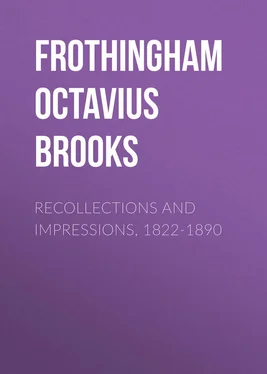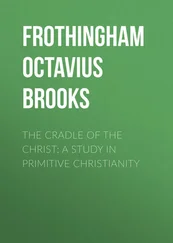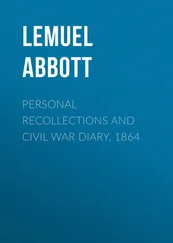Octavius Frothingham - Recollections and Impressions, 1822-1890
Здесь есть возможность читать онлайн «Octavius Frothingham - Recollections and Impressions, 1822-1890» — ознакомительный отрывок электронной книги совершенно бесплатно, а после прочтения отрывка купить полную версию. В некоторых случаях можно слушать аудио, скачать через торрент в формате fb2 и присутствует краткое содержание. Жанр: foreign_antique, foreign_prose, на английском языке. Описание произведения, (предисловие) а так же отзывы посетителей доступны на портале библиотеки ЛибКат.
- Название:Recollections and Impressions, 1822-1890
- Автор:
- Жанр:
- Год:неизвестен
- ISBN:нет данных
- Рейтинг книги:3 / 5. Голосов: 1
-
Избранное:Добавить в избранное
- Отзывы:
-
Ваша оценка:
- 60
- 1
- 2
- 3
- 4
- 5
Recollections and Impressions, 1822-1890: краткое содержание, описание и аннотация
Предлагаем к чтению аннотацию, описание, краткое содержание или предисловие (зависит от того, что написал сам автор книги «Recollections and Impressions, 1822-1890»). Если вы не нашли необходимую информацию о книге — напишите в комментариях, мы постараемся отыскать её.
Recollections and Impressions, 1822-1890 — читать онлайн ознакомительный отрывок
Ниже представлен текст книги, разбитый по страницам. Система сохранения места последней прочитанной страницы, позволяет с удобством читать онлайн бесплатно книгу «Recollections and Impressions, 1822-1890», без необходимости каждый раз заново искать на чём Вы остановились. Поставьте закладку, и сможете в любой момент перейти на страницу, на которой закончили чтение.
Интервал:
Закладка:
At the same time, as if to render impossible my further ministration in this first place of service, the anti-slavery agitation was at its height, dividing churches, breaking up sects, setting the members of families against each other, detaching ministers from their congregations, and arraying society in hostile camps. The noise of the conflict filled the air. It was impossible to evade the issue. Those who had fixed positions in the community, were of a tranquil temperament, or of an easy conscience, might survey the battle calmly, or be vexed only by the confusion in the social world; but they who had the future still before them could not but feel the necessity of taking sides in the quarrel. When Garrison, the incarnate conscience, was enunciating the moral law and illustrating it by flaming texts from the Old Testament; when the intrepid Phillips was throwing the light of history on politics, and putting statesmanship in the face of humanity, judging all men by the maxims of ethical philosophy; when Parker was proclaiming the absolute justice, and Clarke was applying the truths of the eternal love; and many others, men and women, were thundering forth the divine vengeance on iniquity; when facts were set out for everybody's reading, and tongues were unloosed, and fiery messages proceeded from all mouths, and conviction was deep, and eloquence was stirring, it was impossible to be still.
Now the situation is changed; the evil is removed; the wound has healed; the surgeon's knife has been put up in its case. A new philosophy is disposed to blame the action of the anti-slavery champions. Some critics have doubted whether the conduct of the abolitionists was wise; whether their primary assumption of the political equality of all men was correct; whether a race that had never founded a government or contributed to the advance of civilization could add any weight to the cause of liberty. But then such misgivings could not be raised. The abolitionists seemed to have on their side the precepts of the New Testament, the teachings of the Sermon on the Mount, the character and example of Jesus, the burning language of prophecy, the inspiring traditions of primitive Christianity, the humane instincts of the heart, the moral sentiments of equity, pity, compassion, all reinforced by the growing democratic opinion of the age, and by the tenets of the intuitive philosophy then coming to the front. The glowing passages from Isaiah and from Matthew: "Let the oppressed go free; break every yoke"; "Inasmuch as ye did it unto one of the least of these, ye did it unto me," shone in our eyes. To the anti-slavery people belonged the heroic virtues, courage, faithfulness, and sacrifice. Theirs was the martyr spirit; the readiness to surrender ease, position, and success for an idea. It would have been strange if, at such a time, a young man, a clergyman, too, had been a champion of vested interests. The doctrine of a higher law than that of the State commended itself to his idealism, and pledged him to oppose what he regarded as legalized wrong. The doctrine of legal rights for all men made him a firm enemy of organized inhumanity. It was a period of passionate war. In every department of the Church and State the irrepressible conflict went on. It was no time for the calm voice of the loving spirit of wisdom to be heard. It was no time to propose that the local laws respecting slavery should be remodelled, and the relation between whites and blacks readjusted on more equitable principles. The science of anthropology had no weight in America or anywhere else. No exhaustive study of race peculiarities could be entered on. The combatants had the whole field, and between the combatants there seemed to be no room for choice by a minister of the Gospel, an enthusiastic friend of humanity, a democrat, and a transcendentalist.
On one occasion, after a brutal scene in Boston attending the return of a slave to his master, feeling that the larger part of his congregation were in sympathy with the government, and approved of the act of surrender, the excited minister declined to give the ordinance of communion, thinking it would be a mockery. This action brought the growing disaffection to a head. The feeling of the parish was divided. Bitter words were exchanged. The situation on both sides became uncomfortable, and he accepted an invitation to another city, where he could exercise his independence without check or limit.
The position in regard to slavery which was taken thirty years ago there is no room to regret. It was taken with perfect sincerity, and under an uncontrollable pressure of conviction. The part performed by the abolitionists was predestined. The conduct of their opponents looks now as irrational as it did then. American slavery was so atrocious a system, so hideous a blot, that no terms were to be kept with it. Probably nothing but the surgeon's knife would have availed in dealing with such a cancerous mass. The cord had become so fatally twisted that the knot, too closely drawn to be untied, must be cut with the sword. The abolition of slavery was inevitable; it came about through a great elemental upheaval. The situation had become intolerable and was past reforming. Long before the war, it had become impossible to get along with the slaveholders, except on the most ignoble principles of trade or fashion. All manly acquiescence was out of the question. The Unitarians, as such, were indifferent or lukewarm; the leading classes were opposed to the agitation. Dr. Channing stood almost alone in lending countenance to the reform, though his hesitation between the dictates of natural feeling and Christian charity towards the masters hampered his action, and rendered him obnoxious to both parties, – the radicals finding fault with him for not going further, the conservatives blaming him because he went so far. The transcendentalists were quite universally abolitionists, for their philosophy pointed directly towards the exaltation of every natural power. Wherever they touched the earth – as they did not always, some of them soaring away beyond terrestrial things – flowers of hope sprang up in their path. In France, Germany, and England, they were friends of intellectual and social progress, of the ideal democracy. The spiritual philosophy was in the air; its ideas were unconsciously absorbed by the enthusiastic spirits. They constituted the life of the period; they were a light to such as dwelt in darkness or sat under the shadow of death.
In this country Mr. Emerson led the dance of the hours. He was our poet, our philosopher, our sage, our priest. He was the eternal man. If we could not go where he went, it was because we were weak and unworthy to follow the steps of such an emancipator. His singular genius, his wonderful serenity of disposition inherited from an exceptional ancestry and seldom ruffled by the ordinary passions of men, his curious felicity of speech, his wit, his practical wisdom, raised him above all his contemporaries. His infrequent contact with the world of affairs, his seclusion in the country, his apparitions from time to time on lecture platforms or in convention halls, gave a far-off sound to his voice as if it fell from the clouds. Some among his friends found fault with him for being bloodless and ethereal, but this added to the effect of his presence and his word. The mixture of Theism and Pantheism in his thoughts, of the personal and the impersonal, of the mystical and the practical, fascinated the sentiment of the generation, while the lofty moral strain of his teaching awakened to increased energy the wills of men. His speech and example stimulated every desire for reform, turning all eyes that were opened to the land of promise that seemed fully in sight. How much the anti-slavery conviction of the time, along with every other movement for the purification of society, owed to him we have always been fond of saying with that indefiniteness of specification which communicates so much more than it tells. This must be said, that, in the exhilaration of the period, they that worked hardest felt no exhaustion, and they that sacrificed most were conscious of no self-abnegation, and they that threw their lives into this cause had no sentiment but one of overflowing gratitude and joy. The anti-slavery agitation was felt to be something more than an attempt to apply the Beatitudes and the Parables to a flagrant case of inhumanity – it was regarded as a new interpreter of religion, a fresh declaration of the meaning of the Gospel, a living sign of the purely human character of a divine faith, an education in brotherly love and sacrifice; it was a common saying that now, for the first time in many generations, the essence of belief was made visible and palpable to all men; that Providence was teaching us in a most convincing way, and none but deaf ears could fail to understand the message.
Читать дальшеИнтервал:
Закладка:
Похожие книги на «Recollections and Impressions, 1822-1890»
Представляем Вашему вниманию похожие книги на «Recollections and Impressions, 1822-1890» списком для выбора. Мы отобрали схожую по названию и смыслу литературу в надежде предоставить читателям больше вариантов отыскать новые, интересные, ещё непрочитанные произведения.
Обсуждение, отзывы о книге «Recollections and Impressions, 1822-1890» и просто собственные мнения читателей. Оставьте ваши комментарии, напишите, что Вы думаете о произведении, его смысле или главных героях. Укажите что конкретно понравилось, а что нет, и почему Вы так считаете.












